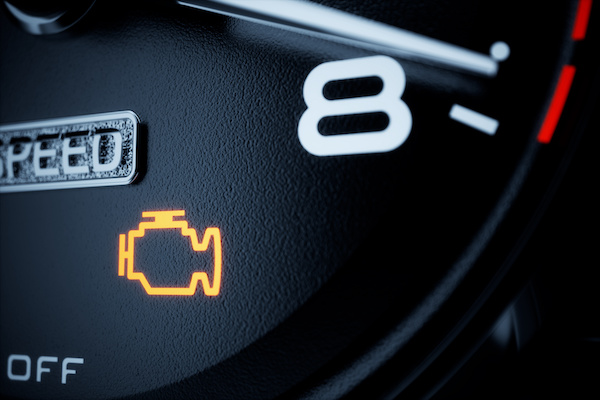
"Why is my check engine light on?" is one of the most common questions mechanics are asked, and for good reason. It makes sense because the light turns on, however, it gives no apparent explanation to you as a driver of what the issue could possibly be. Since the check engine light can illuminate for various reasons, it's vital to have a trusted automotive specialist perform proper diagnostics to identify the definitive cause. The issue could be as small as a loose gas cap, or something more serious such as a failing catalytic converter. The equipment we use here at Grand Garage allows us to scan your vehicle’s on-board computer system to better understand the true problem at hand.
Here are five of the most common problems that can trigger the check engine light:
BAD OXYGEN SENSOR
The oxygen sensor plays a key role in regulating the amount of unburned oxygen within your vehicle's exhaust system. If you're noticing that your car is burning through more fuel than usual, followed by the check engine light coming on, you should have the oxygen sensor examined.
FAULTY CATALYTIC CONVERTER
The catalytic converter is an exhaust containing a significant catalyst. The catalyst turns toxic fumes into less dangerous ones. A malfunctioning catalytic converter is usually not a standalone issue and is commonly attributed to several other parts that work separately that are also failing. This component is critical to your vehicle’s health and ensuring that your car meets emissions standards.
DAMAGED SPARK PLUGS
Your spark plugs are in charge of igniting the gas and air mixture within the combustion chamber to power your engine. Over time, spark plugs can become old and corroded. While newer vehicles are less prone to experience complications, older cars with more miles may need spark plugs replaced periodically.
OVERHEATING
Your car's engine has complex components that produce intense heat. It can overheat for numerous reasons, such as inadequate amounts of engine oil or coolant. When your engine overheats, you may see smoke coming from under the hood and the temperature gauge approaching high. If you suspect the engine is overheating, quickly pull over in a safe spot until the engine cools down entirely. It is not safe for you or your engine to continue driving in such conditions, and you should take an overheating engine very seriously.
THE GAS CAP IS LOOSE
The gas cap keeps your fuel from evaporating and reduces emissions. It's easy to leave the gas cap loose if you're in a hurry at the gas station. If you fasten the gas cap on and the check engine light doesn't turn off, make sure the lid isn't cracked or damaged. Luckily, replacing a gas cap is a quick and easy fix.
The problems behind a check engine light can range from harmless to catastrophic, so you shouldn't ignore it. One of our certified technicians at Grand Garage can conduct a diagnostic scan to get to the root of the problem. For all your vehicle maintenance and repair needs, call or visit Grand Garage today!